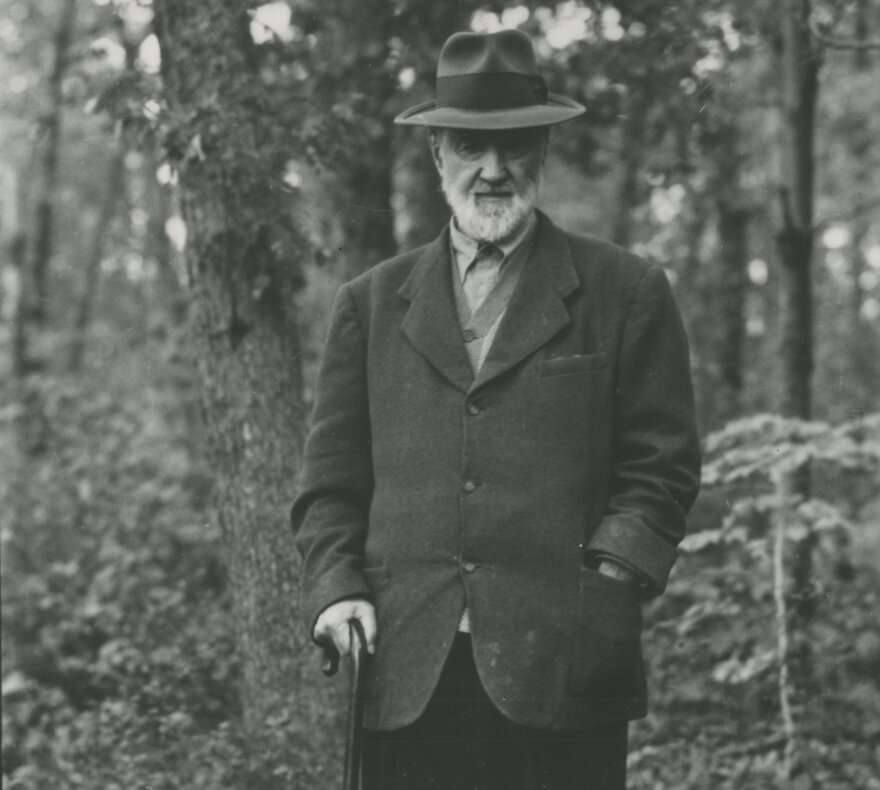This goes without saying, but it’s been a long, strange trip to Election Day. The 2024 presidential race has been marked by urgent purpose at a fever pitch, with both major parties insisting that the future of the union is at stake.
And when has an election cycle been more packed with incident? Recall that one candidate abruptly dropped out of the race. Another faced an assassination attempt. Yet another has brought a full-court press to her campaign in Pennsylvania, which could decide the whole thing. There have been pivots and protests and podcasts, and oh so many political ads. How, then, to capture the spirit of this historic occasion musically, in a way that soothes the soul even as it speaks to the moment at hand?

There are as many answers to that question as there are paths to electoral victory, of course. One hopeful response lies in a piece composed by Charles Ives as a teenager, for a Fourth of July celebration at First United Methodist Church in Brewster, NY, where he was serving as organist at the time.
We just celebrated Ives’ centennial a little over two weeks ago, on Oct. 20. He wrote his “Variations on ‘America’” as a youthful showpiece, building around Samuel Francis Smith’s familiar anthem “America (My Country, ‘Tis of Thee).” Ives continued revising the piece for a couple of years after its first performances in 1892. But it went unpublished until 1949, when the noted concert organist E. Power Biggs rediscovered and recorded the piece, and helped prepare an edition for publication.
“Variations on ‘America’” has been in the repertoire ever since: a patriotic touchstone and a formidable challenge, as you can see (and hear) in this expertly filmed footage of Colin MacKnight performing the piece in the final round of last year’s Longwood Gardens International Organ Competition.
Ives structured “Variations on ‘America’” with five variations and two interludes, along with an introduction and a coda. The interludes are of particular interest as we connect the piece to our electoral customs, because they contain Ives’ first composerly use of bitonality — an obvious analog to an often discordant two-party system. (In the first such interlude, the organist’s right hand inhabits the key of F while the left hand and pedals occupy D-flat. In the second interlude, the two keys are A-flat and F.)
Because Ives was so closely associated with the organ — he was playing professionally by age 14, and served as organist at Center Church on the Green throughout his undergraduate years at Yale — the original format of “Variations on ‘America’” feels like a uniquely personal dispatch. Of the slippery pedal variations toward the end of the piece, he once famously remarked that executing them was “as much fun as playing baseball.” (Watch the MacKnight video, starting at 6:20, and you’ll see what he means.)
“Variations on ‘America’” has also enjoyed a long history in the orchestral repertoire, thanks to an orchestration made by William Schuman in 1962. Two years later, this version of the piece was premiered by the New York Philharmonic under Andre Kostelanetz. It has since been recorded by the Philharmonia Orchestra under Eugene Ormandy, and by the WDR Symphony Orchestra under Jonathan Stockhammer. The United States Marine Band recorded it for a 2003 album, Charles Ives’s America.
Indeed, the U.S. Marine Band has made “Variations on ‘America’” a natural calling card, and it was high on the list of audience requests for the band’s “Digital Rehearsal Hall.” That video finds the band rehearsing the piece, complete with notes from its director, Col. Jason Fettig. (“The grace notes are not original to the organ,” he points out, about a passage at letter F in the score. “So what Ives originally had was just the hymn, as you would have it in a hymnal, as if you were playing it in church. So if we could keep the grace notes very, very in the background — pretty short, little flips, little drips of water.”)
But there’s a circuslike quality in Ives’ original organ arrangement that feels truer to the spirit of our presidential campaign. It would be a mistake to assume that he imbued his shifty, nifty elaborations with satirical intent; by all accounts, he was earnest in adapting the idea of theme and variations to an American temperament. (At times, you can almost hear in the piece a touch of jazz — some Fats Waller, perhaps.)

Ives composed other pieces that take on the American political system more directly — notably “Nov. 2. 1920,” a selection in his 114 Songs that invokes a famous World War I poem in the course of protesting Warren Harding’s electoral victory. (That same year, 1920, Ives proposed a 20th Amendment to the U.S. Constitution, which would authorize citizens to submit specific legislative proposals to Congress.)
Perhaps young Charles was born to the legacy: he was two years old during the presidential election of 1876, whose disputed outcome led Congress to create an Electoral Commission.
Whatever cause or conjecture we bring to the table, there can be no doubt that “Variations on ‘America’” is a musical confection that conjures both a collective swell of patriotism and the particular impact of an individual voice at play. What could be more appropriate as we head to the polls, or fretfully wait for returns, this Election Day?


